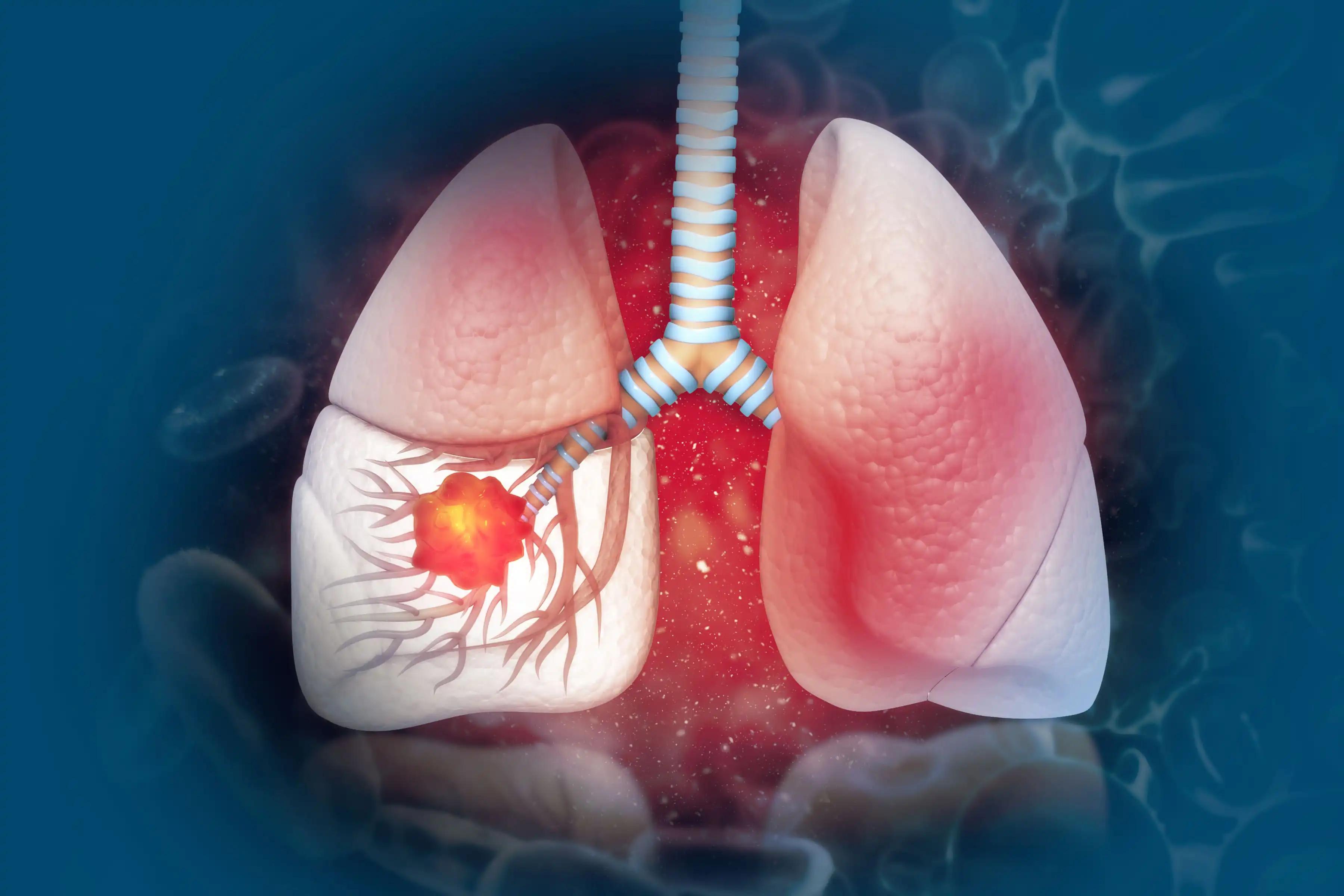KEY TAKEAWAYS
- The phase III trial aimed to assess the efficacy, safety, and tolerability of savolitinib in treating advanced or metastatic non-small cell lung cancer (NSCLC) with MET exon 14 mutations.
- The primary endpoint was ORR assessed by IRC per RECIST 1.1. Secondary endpoints mainly included DCR, DoR, TTR, PFS, and OS.
- The study demonstrated promising efficacy and acceptable safety as a first-line treatment for MET exon 14-mutated NSCLC.
Savolitinib, a powerful and selective oral MET tyrosine-kinase inhibitor, has shown promising early results in treating patients(pts) with MET exon 14 (METex14)-mutated non-small cell lung cancer (NSCLCs).
Researchers aimed to assess the efficacy, safety, and tolerability of savolitinib in treating advanced or metastatic NSCLC with MET exon 14 mutations.
Pts with treatment-naive METex14-mutated NSCLC in Cohort 2 (1L) received savolitinib QD at 600 mg (body weight ≥50 kg) or 400 mg (body weight <50 mg) every 21 days. The primary endpoint, assessed by an independent review committee (IRC) per RECIST 1.1, was the overall response rate (ORR). Secondary endpoints included disease control rate (DCR), duration of response (DoR), time to response (TTR), progression-free survival (PFS), and overall survival (OS). Results for cohort 2 include all enrolled pts with at least 6 months of follow-up or end of treatment.
In cohort 2, 87 enrolled pts had the following baseline characteristics: median age, 70 years; male, 58.6%; ECOG of 1, 81.6%; adenocarcinoma type, 80.5%; pulmonary sarcomatoid carcinomas type, 8.0%; clinical stage IV at enrollment, 88.5%; brain metastasis (11.5%). Median treatment duration was 8.02 months (range: 0.4, 14.5). Among evaluable pts with at least one post-baseline tumor assessment (n=84), the IRC-assessed ORR was 59.5% (50/84, 95% CI: 48.3%, 70.1%), with all 50 pts achieving partial response, and the DCR was 95.2% (95% CI: 88.3%, 98.7%). In the full analysis set (N=87), as assessed by IRC, the median DoR was not reached, and median TTR was 1.4 months (95% CI: 1.4, 1.5); with a median PFS follow-up of 8.3 months, median PFS was 12.6 months (95% CI: 8.5, -) with a 6-month PFS rate of 76.2% (95% CI: 65.2%, 84.1%) and 12-month PFS rate of 61.0% (95% CI: 47.7%, 71.8%); with a median OS follow-up of 9.7 months, the median OS was not reached.
About 86 pts (98.9%) reported at least one treatment-emergent adverse event (TEAE), and 67 pts (77.0%) experienced TEAEs of grade ≥3. 85 pts (97.7%) experienced treatment-related TEAEs (TRAE), and 58 pts (66.7%) had TRAEs of grade ≥3, with the most common (≥5%) events being hepatic function abnormal (21.8%), alanine aminotransferase increased (16.1%), aspartate aminotransferase increased (13.8%), hypokalaemia (5.7%), oedema peripheral (5.7%), gamma-glutamyltransferase increased (5.7%).
The study demonstrated promising efficacy and acceptable safety as a first-line treatment for MET exon 14-mutated NSCLC.
Source: https://cattendee.abstractsonline.com/meeting/10925/presentation/995
Clinical Trial: https://clinicaltrials.gov/study/NCT04923945
Lu S, Yu Y, Guo Q, Li Y, Zhong D, Gu L, Fang J, Han S, Pan P, Deng P, Liu B, Wang M, Wu H, Gao F, Lin W, Li J, Lv D, He S, Liu Z, Pan C, Li J, Tian Y, Yang N, Zhang Y, Liu C, Zhu X, Song Q, Yu J, Fan S, Ren Y, Shi M, Su W. A Phase 3b Study of 1L Savolitinib in Patients with Locally Advanced or Metastatic NSCLC Harboring MET Exon 14 Mutation. Shanghai Chest Hospital, Shanghai, China; Shandong Cancer Hospital, Jinan, China; Tianjin Medical University General Hospital, Tianjin, China; Beijing Cancer Hospital, Beijing, China; Xiangya Hospital of Central South University, Changsha, China; Harbin Medical University Cancer Hospital, Harbin, China; Henan Cancer Hospital, Zhengzhou, China; Hunan Cancer Hospital, Changsha, China; Taizhou Hospital of Zhejiang Province, Taizhou, China; Jiangxi Cancer Hospital, Nanchang, China; Sichuan Cancer Hospital, Cheng Du, China; Cancer Hospital Affiliated to Xinjiang Medical University, Urumqi, China; HUTCHMED Limited, Shanghai, China.



